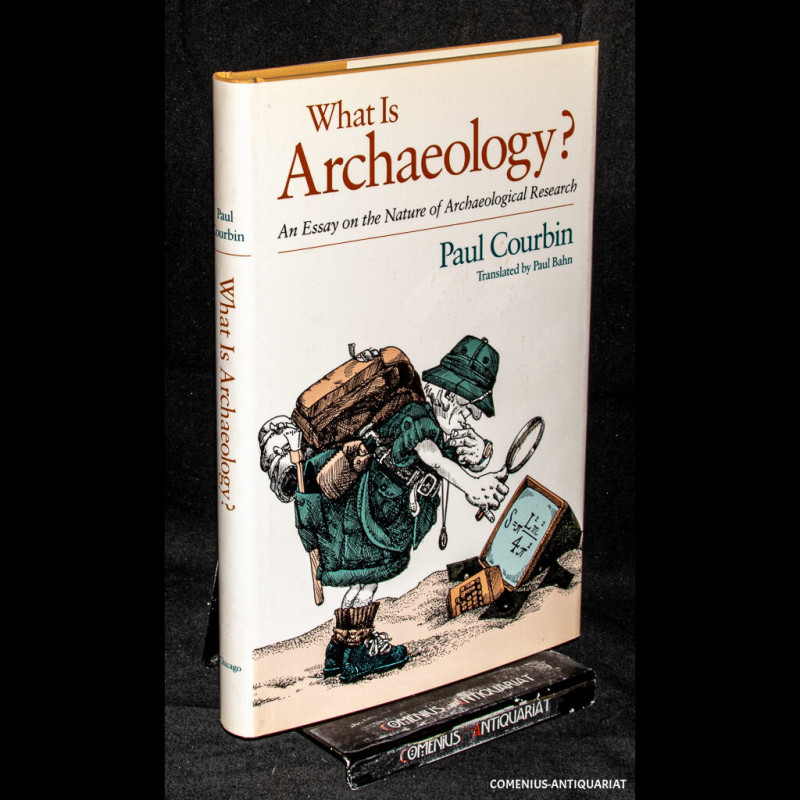Courbin, Paul,
What is Archaeology? An Essay on the Nature of Archaeological Research. Chicago, London: University of Chicago Press, 1988. xxv, 197 Seiten mit Register. Leinen mit Schutzumschlag. Grossoktav. 236 x 160 mm. 498 g
Bestell-Nr.159215 | ISBN: 0-226-11656-5
Courbin |
Archaeologie |
New Archeology
What Is Archaeology?
An Essay on the Nature of Archaeological Research
Paul Courbin
Translated by Paul Bahn
Paul Courbin puts forward a penetrating and eloquent critique of the New Archeology, a movement of primarily American and British archaeologists that began in the 1960s and continues today. The New Archeologists dropped the "ae" spelling, symbolizing their intent to put the field on a modern and scientific footing. They questioned the bases, the objectives, and consequently the methods of traditional archaeology.
Courbin examines this movement, its latent philosophy, its methods and their application, its theories, and its results. He declares that the record shows a devastating failure. The New Archeologists, he contends, may have developed scientific hypotheses, but in most cases they failed to carry out what was necessary to test their theories, thus contradicting the very goals they had set for the discipline.
Reevaluating the field as a whole, Courbin asks, What is archaeology? He distinguishes it from such related fields as history and anthropology, emphatically arguing that the primary task of archaeology is what the archaeologist alone can accomplish: the establishment of facts—stratigraphies, time sequences, and identifications of tools, bones, potsherds, and so on. When archaeological findings lead to historical or anthropological conclusions, as they very often do archaeologists must be aware that this in- 3 volves a specific change in their work; they are no longer archaeologists proper. The archaeologist's work, Courbin stresses, is not a humble auxiliary of anthropology or history, but the foundation upon which historians and anthropologists of ancient civilizations will build and without which their theories cannot but collapse. What Is Archaeology? was originally published in French in 1982.
Paul Courbin, a prominent French archaeologist, is professor at the Ecole des hautes etudes en sciences sociales in Paris.





 Privacy
Privacy
 Shipping Costs
Shipping Costs
 Google Mail
Google Mail
